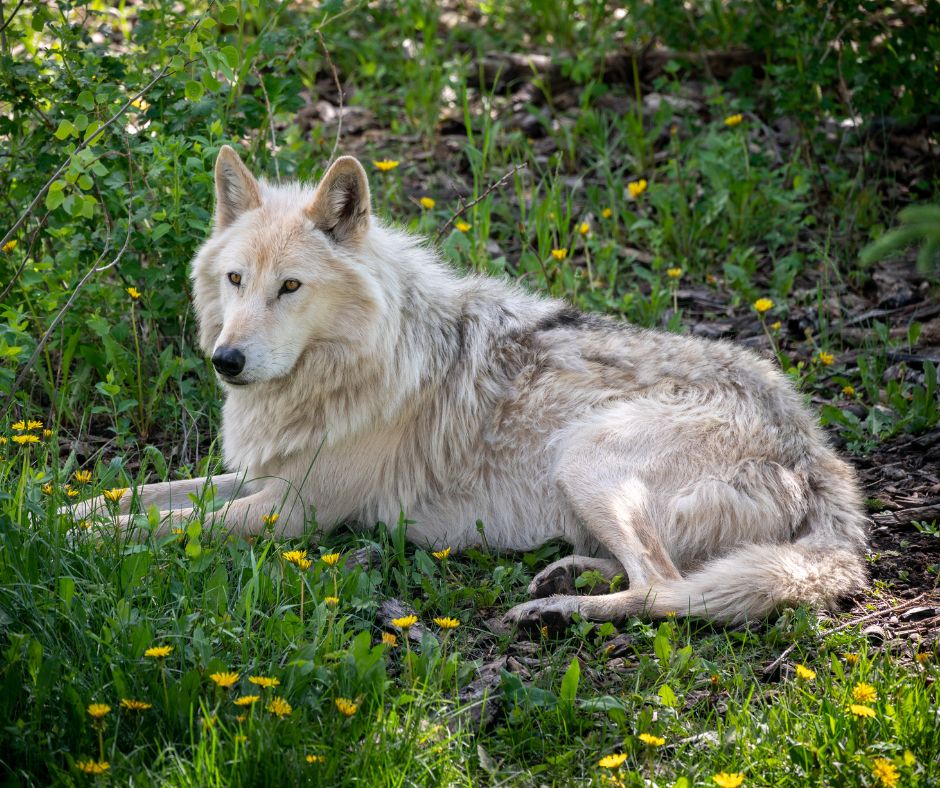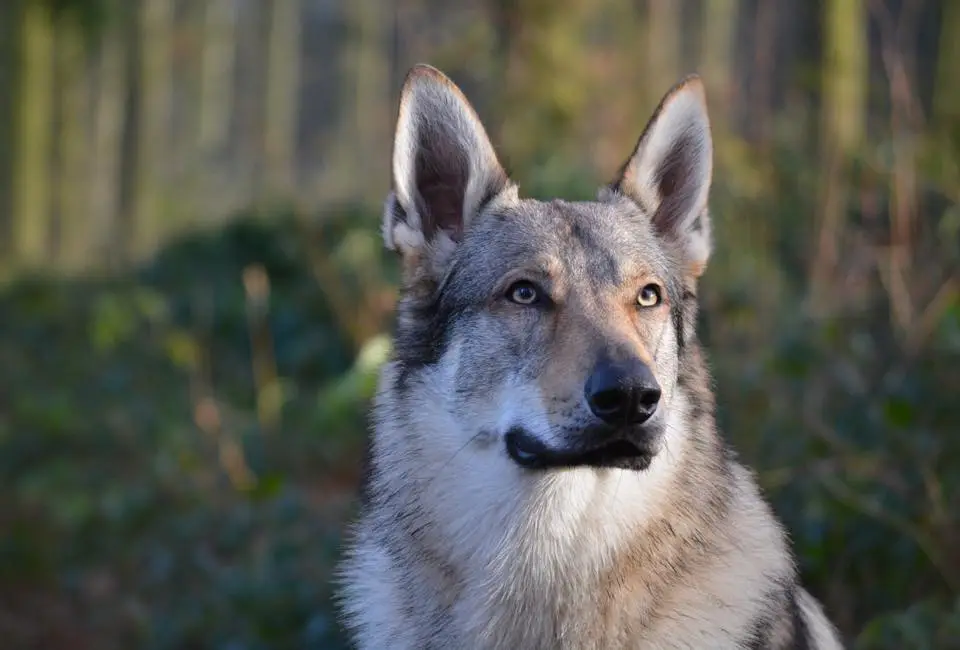In the United Kingdom, owning certain dog breeds, notably those outlined in the Dangerous Dogs Act 1991, such as purebred wolf breeds like Czechoslovakian Wolfdogs or Saarloos Wolfdogs, is illegal. While the law doesn’t explicitly address wolfdog hybrids, their legality hinges on their lineage and percentage of wolf heritage.
If a wolfdog possesses a substantial amount of wolf ancestry, typically exceeding 50%, it may fall under the Dangerous Wild Animals Act 1976. This legislation mandates special licensing for keeping certain wild animals, potentially including some wolfdog hybrids. Compliance involves meeting stringent regulations, securing permits, maintaining appropriate enclosures, and demonstrating the ability to care for an animal with wild traits.
As regulations can differ across regions within the UK, individuals contemplating ownership of a wolfdog hybrid should thoroughly research local laws, seek advice from authorities, and ensure strict adherence to legal requirements to avoid any legal ramifications.
What breeds are banned under the Dangerous Dogs Act 1991 in the UK?

In the UK, under the Dangerous Dogs Act 1991 (DDA), four specific breeds are banned or restricted:
- Pit Bull Terrier
- Japanese Tosa
- Dogo Argentino
- Fila Brasileiro
These breeds are prohibited from being bred, sold, exchanged, or given away. Additionally, it’s illegal to allow these types of dogs to be in public places without being muzzled and on a leash, as well as without being registered, insured, neutered, and tattooed.
It’s important to note that the law refers to types or characteristics rather than specific breeds, and it focuses on dogs that are deemed to pose a threat based on their physical appearance or characteristics rather than their actual behavior. This means that dogs displaying certain physical attributes or characteristics resembling these breeds could potentially be seized and deemed illegal under the DDA.
How does the Dangerous Wild Animals Act 1976 regulate wolfdog ownership?
The Dangerous Wild Animals Act 1976 in the United Kingdom doesn’t specifically address or regulate the ownership of wolfdogs. This act primarily focuses on the regulation of specific dangerous wild animals that are kept in captivity.
Wolfdogs, which are hybrids of domestic dogs and wolves, fall into a bit of a regulatory gray area in the UK. While they are not explicitly mentioned in the Dangerous Wild Animals Act, the ownership and regulation of wolfdogs can be subject to local authority interpretation and regulations under various animal welfare and control laws.
In some cases, local councils might consider wolfdogs as dangerous or hybrid animals that require special licensing or permits for ownership. The decision regarding their classification and regulation may vary from one local authority to another, and some councils might require owners to adhere to certain guidelines or restrictions.
It’s crucial for potential wolfdog owners to research and understand the specific regulations and restrictions in their local area regarding the ownership of such hybrids. Consulting with local animal control authorities or legal experts can provide clarity on the requirements and responsibilities associated with keeping wolf dogs as pets.
How to determine the legality of owning wolf dogs in the UK?

Determining the legality of owning wolf dogs in the UK can be complex as there isn’t a specific nationwide legislation addressing wolfdogs. Instead, the regulations can vary between different regions and local councils. Here are some steps you can take to understand the legality of owning wolf dogs:
Check Local Regulations
Contact your local council or authority responsible for animal control and inquire about their specific regulations regarding wolfdogs. Different councils might have varying rules or licensing requirements for owning such hybrid animals.
Research Breed-Specific Legislation (BSL)
While there’s no specific law regarding wolfdogs, they may fall under the scope of Breed-Specific Legislation (BSL), which governs certain breeds or types of dogs deemed potentially dangerous. Check if any BSL applies to wolfdogs in your area.
Consult Legal Experts or Specialized Organizations
Seek advice from legal experts specializing in animal law or organizations that deal with wolfdogs or hybrid animals. They might have insights into the legal status and restrictions related to owning wolf dogs in the UK.
Consider Welfare and Housing Requirements
Even if owning wolf dogs is legal in your area, ensure you can provide suitable living conditions and welfare standards for these animals. Wolfdogs have specific needs due to their hybrid nature, including space, appropriate containment, and enrichment.
Be Aware of Liability and Responsibility
Wolfdogs, due to their wolf ancestry, may present unique challenges in terms of behavior and care. Understand the responsibility and liability that comes with owning such animals.
Documentation and Pedigree
If you plan to acquire a wolfdog, ensure the animal comes with proper documentation and pedigree. This might include details about its breeding, ancestry, and any certificates demonstrating its status as a legal hybrid.
Always keep in mind that laws and regulations regarding animal ownership, especially hybrid or potentially dangerous species, can be subject to change. Therefore, it’s crucial to stay updated with local laws and seek professional advice before considering ownership of wolfdogs in the UK.
FAQ’s
Can I keep a pet wolf?
Keeping a pet wolf is generally not advised or legal in most places due to their wild nature and specific care needs.
Is a Husky a wolf?
Huskies are domesticated dogs and are not wolves. However, they share some physical traits resembling wolves.
Are wolf-dogs aggressive?
The behavior of wolf-dogs varies widely based on their individual traits and upbringing. Some may display aggression due to their wild ancestry.
What dog breed is closest to a wolf?
The Alaskan Malamute, Siberian Husky, and Czechoslovakian Wolfdog are among breeds closely resembling wolves.
Are wolf-dogs legal in Australia?
Laws regarding wolf-dogs vary by state in Australia, but generally, owning wolf-dogs or hybrids with wolf content is restricted or prohibited.
How long do wolf-dogs live?
Wolf-dogs’ lifespan can vary, typically around 12-14 years, influenced by their genetics, care, and environment.
Final Words
In conclusion, owning wolf dogs in the UK involves navigating complex laws. The Dangerous Dogs Act 1991 bans specific breeds, but it doesn’t directly address wolfdogs. The Dangerous Wild Animals Act 1976 might apply to some wolfdog hybrids due to their wild ancestry, necessitating special permits. To determine if owning a wolfdog is legal, it’s essential to assess their wolf heritage and comply with regulations. Researching local laws, obtaining necessary permits, and seeking guidance are crucial steps to avoid legal issues when considering wolfdog ownership in the UK.

